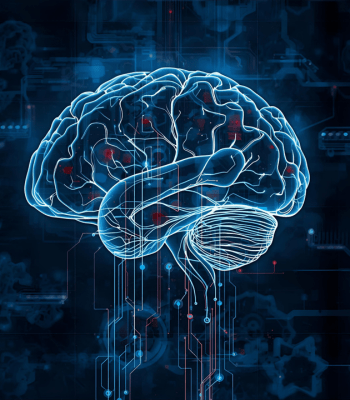
Definition of Psychology
Psychology is a fascinating branch of science. It examines behavior, both what is visible and what is hidden. At its core, psychology is defined as the scientific study of human behavior and mental processes. But it’s more than just watching what people do. It also looks at how we see the world. It examines how we feel inside and how those feelings affect our reactions.
In simple words, psychology is the study of cognition, affect, and behavior. Hence, psychology helps us understand not just what we do, but why we do it. Furthermore, it aims to correct maladaptive behaviors and promote healthier, more functional alternatives.
4 Goals of Psychology
Describe: What is happening?
Explain: Why is it happening?
Predict: What will next happen?
Control and Change: How can it be helped by using psychological knowledge?
History of Psychology
Plato (428-347 BC)
He argued for the role of nature in psychological development.
Aristotle (384-322 BC)
Next, he emphasized observation and experience as key to understanding human behavior.
Thomas Hobbes (1588-1679)
He views human behavior as governed by mechanical laws and driven by self-interest, which lays the groundwork for behaviorism.
John Lock (1632-1704
He introduced the idea of the mind as a “tabula rasa” (blank slate), emphasizing that knowledge comes from experience.
Jean-Jacques Rousseau (1712-1778)
Emphasized the natural goodness of humans and the importance of development and education in shaping behavior.
Gustav Fechner (1801-1887)
Developed the idea of the just noticeable difference (JND), which is considered the first empirical psychological measurement.
Charles Darwin (1809-1882)
He gave the theory of evolution, highlighting the role of natural selection in shaping behavior and mental processes.
Wilhelm Wundt (1832-1920)
He is the father of modern psychology. He set up the first psychology lab. And also, promoted studying consciousness through introspection.
William James (1842-1910)
He emphasized the purpose of consciousness and behavior in adapting to the environment.
Ivan Pavlov (1849-1936)
His experiments on learning led to the principles of classical conditioning.
Herman Ebbinghaus (1850-1909)
Hermann Ebbinghaus was a pioneer in experimental psychology. He is known for his groundbreaking research on memory and the forgetting curve.
Sigmund Freud (1856-1939)
He founded the field of Psychodynamic Psychology.
John B. Watson (1878-1958)
He contributed to the field of behaviorism.
Jean Piaget (1896-1980)
He developed an important theory of cognitive development in children.
B.F. Skinner (1904-1990)
He developed operant conditioning, demonstrating how behavior is shaped by reinforcement and punishment.
Donald Broadbent (1926-1993)
Donald Broadbent developed the filter model of attention and, hence, laid the foundation for cognitive psychology and information processing theory.
20th & 21st Centuries
Some American Psychologists contributed to the cognitive school of psychology by studying learning, memory, and judgment. Moreover, social and cultural psychology is promoted. And the neuroscience field was studied. Additionally, Daniel Kahneman won the Nobel Prize in Economics for his work on psychological decision-making.
Today, in the era of artificial intelligence, researchers are exploring psychology in the context of AI.
7 Fundamental Concepts of Psychology
Perception
The process of organizing and interpreting sensory information
Learning
A relative change in behavior through experience.
Memory
The storage and retrieval of information.
Emotion
Emotions are complex reactions and feelings that have both physiological and cognitive components, influencing behavior.
Motivation
Motivation includes factors that direct and, hence, energize the behavior of humans and other organisms.
Cognition
Mental processes involved in acquiring knowledge.
Personality
Individual’s characteristic patterns of behavior, thinking process, feelings, and emotions.
Related: Industrial Organizational Psychology
Related: Forensic Psychology

2 comments on “What is Psychology?”